I’ve read a lot of books in the last couple of years. These are some books I found valuable in beginning to understand racism. I’ve included the Amazon blurb for each, as well as a link to the Amazon listing for the book.
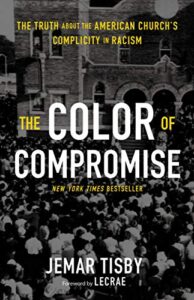
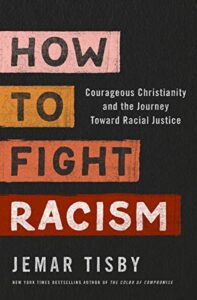
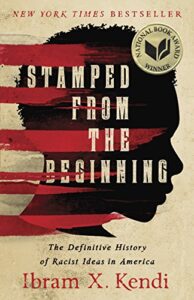
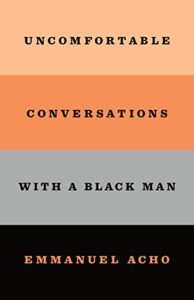
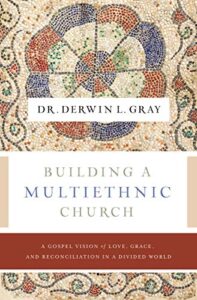
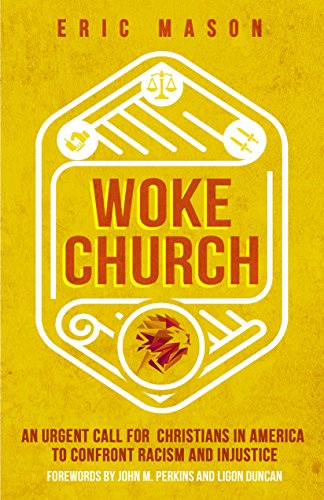
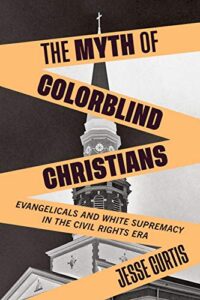
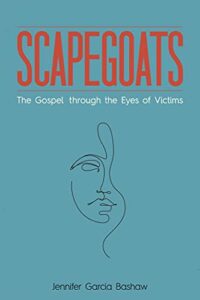
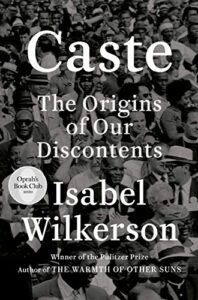
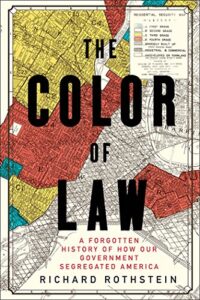
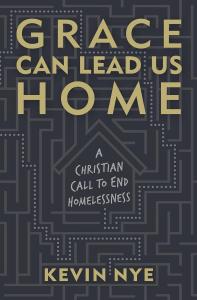

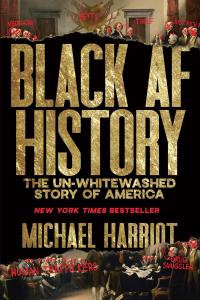
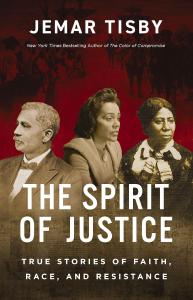
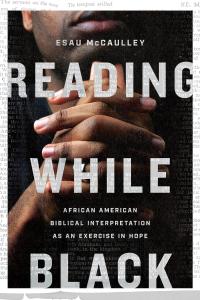
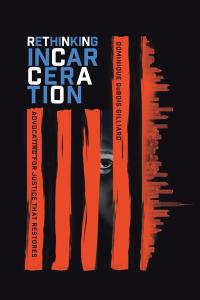
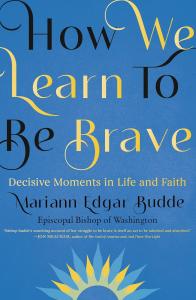
Reviews
“The Color of Compromise: The Truth about the American Church” by Jemar Tisby and Lecrae Moore


This was another hard-history book. I don’t fully agree with all of Tisby’s calls to action or his suggested solutions, but there is so much else of value here that I still highly recommend it. I ran a 12-week book study on this book.
(Reviewed March 2021)
Amazon description: The Color of Compromise is both enlightening and compelling, telling a history we either ignore or just don’t know. Equal parts painful and inspirational, it details how the American church has helped create and maintain racist ideas and practices. You will be guided in thinking through concrete solutions for improved race relations and a racially inclusive church. The Color of Compromise:
The Color of Compromise is not a call to shame or a platform to blame white evangelical Christians. It is a call from a place of love and desire to fight for a more racially unified church that no longer compromises what the Bible teaches about human dignity and equality. A call that challenges black and white Christians alike to standup now and begin implementing the concrete ways Tisby outlines, all for a more equitable and inclusive environment among God’s people. Starting today.
“How to Fight Racism: Courageous Christianity and the Journey Toward Racial Justice” by Jemar Tisby


This book, also by Tisby, is a very practical book, less historical, but more down-to-earth suggestions.
(Reviewed March 2021)
Amazon description: In this follow-up to the New York Times Bestseller the Color of Compromise, Jemar Tisby offers an array of actionable items to confront racism. How to Fight Racism introduces a simple framework – “the A.R.C. Of Racial Justice” – that teaches readers to consistently interrogate their own actions and maintain a consistent posture of anti-racist behavior. The A.R.C. Of Racial Justice is a clear model for how to think about race in productive ways:
Tisby offers practical tools for following this model and suggests that by applying these principles, we can help dismantle a social hierarchy long stratified by skin color. He encourages rejection passivity and active participation in the struggle for human dignity. There is hope for transforming our nation and the world, and you can be part of the solution.
“Stamped from the Beginning: The Definitive History of Racist Ideas in America” by Ibram X. Kendi


This was an extremely hard book for me to read – not because of big words or challenging intellectual concepts, but simply to see a side of American history that I had never been taught that so completely broke down my white-man assumptions about our history. Kendi has a PhD in history; this book is written with all the intellectual rigor and careful sourcing as one would expect from a PhD. As with The Color of Compromise, I highly recommend it. But be aware: it’s a very long book with a ton of historical detail.
(Reviewed June 2021)
Amazon description: Some Americans insist that we’re living in a post-racial society. But racist thought is not just alive and well in America–it is more sophisticated and more insidious than ever. And as award-winning historian Ibram X. Kendi argues, racist ideas have a long and lingering history, one in which nearly every great American thinker is complicit. In this deeply researched and fast-moving narrative, Kendi chronicles the entire story of anti-black racist ideas and their staggering power over the course of American history. He uses the life stories of five major American intellectuals to drive this history: Puritan minister Cotton Mather, Thomas Jefferson, abolitionist William Lloyd Garrison, W.E.B. Du Bois, and legendary activist Angela Davis. As Kendi shows, racist ideas did not arise from ignorance or hatred. They were created to justify and rationalize deeply entrenched discriminatory policies and the nation’s racial inequities. In shedding light on this history, Stamped from the Beginning offers us the tools we need to expose racist thinking. In the process, he gives us reason to hope.
“Uncomfortable Conversations with a Black Man” by Emmanuel Acho


I saw this book on the table at BJs, and went home and bought it on Kindle. It’s a friendly, easy read despite the challenging topic. Acho is very approachable and soft-spoken, but addresses plenty of difficult tropes and questions.
(Reviewed December 2020)
Amazon description: "You cannot fix a problem you do not know you have." So begins Emmanuel Acho in his essential guide to the truths Americans need to know to address the systemic racism that has recently electrified protests in all fifty states. "There is a fix," Acho says. "But in order to access it, we’re going to have to have some uncomfortable conversations." In Uncomfortable Conversations With a Black Man, Acho takes on all the questions, large and small, insensitive and taboo, many white Americans are afraid to ask—yet which all Americans need the answers to, now more than ever. With the same open-hearted generosity that has made his video series a phenomenon, Acho explains the vital core of such fraught concepts as white privilege, cultural appropriation, and "reverse racism." In his own words, he provides a space of compassion and understanding in a discussion that can lack both. He asks only for the reader’s curiosity—but along the way, he will galvanize all of us to join the antiracist fight.
“Building a Multiethnic Church: A Gospel Vision of Grace, Love, and Reconciliation in a Divided World” by Derwin L. Gray and Matt Chandler


This is a wonderfully visionary book meant to be read by church leaders, but inspiring for the layperson. With that said, I think there are some practicalities in the suggestions, but that didn’t stop me from appreciating the vision-casting from a former NFL star turned pastor.
(Reviewed June 2021)
Amazon description: America has become a beautiful mosaic filled with many colors and ethnicities—but does your church reflect this change? Are you longing to be a cross-cultural leader who can guide the church into a multicolored world for the sake of the gospel? If so, Building a Multiethnic Church will give you the tools to embrace an invigorated community of grace, love, and reconciliation. In Building a Multiethnic Church, bestselling author and pastor Dr. Derwin Gray calls all churches and their leaders to grow out of ignorance, classism, racism, and greed into a flourishing, vibrant, and grace-filled community of believers. Drawing on wisdom from the early church and the New Testament, Gray will help you understand that planting and transforming churches into multiethnic communities is a biblical calling; identify and implement the best practices to help build multiethnic churches; and recognize that reconciliation between ethnic groups in the church is not just a social issue, but a theological issue that cannot be ignored.
“Woke Church: An Urgent Call for Christians in America to Confront Racism and Injustice” by Eric Mason


Right now, the concept of "woke" is being used as an pejorative against anything liberal by right-wing and conservative media. But woke has an old and established meaning that deserves attention. This book covered some historical ground I’d already trod, thanks to the books above, but it filled in some gaps in my knowledge and helped frame some ideas about how to respond when people misuse the word. It was definitely worth my time to read.
(Reviewed March 2023)
Amazon description: The prophets of old were not easy to listen to because they did not flatter. They did not cajole. They spoke hard words that often chafed and unsettled their listeners. Like the Old Testament prophets, and more recent prophetic voices like Frederick Douglass, Dr. Eric Mason calls the evangelical church to a much-needed reckoning. In a time when many feel confused, complacent, or even angry, he challenges the church to: Be Aware — to understand that the issue of justice is not a black issue, it’s a kingdom issue. To learn how the history of racism in America and in the church has tainted our witness to a watching world. Be Redemptive — to grieve and lament what we have lost and to regain our prophetic voice, calling the church to remember our gospel imperative to promote justice and mercy. Be Active — to move beyond polite, safe conversations about reconciliation and begin to set things aright for our soon-coming King, who will be looking for a WOKE CHURCH.
“The Myth of Colorblind Christians: Evangelicals and White Supremacy in the Civil Rights Era” by Jesse Curtis


This book is well worth your time, especially if you’re often answering the claim that Christians ought to be colorblind. It’s an attractive idea – "therefore there is neither Jew nor Greek" and so we ought to ignore races and skin colors, right?
Well, not so much.
Digging into the actual implications of this "doctrine" that pervades the white conservative party and evangelicalism reveals that, in fact, it gives Christians a lot of unfortunate permission to ignore a lot of subtle but real racism present in the church today.
So I suggest this book is a good primer on hidden racism in the church and conservative politics.
(Reviewed May 2023)
Amazon description: The Myth of Colorblind Christians reveals the little-known story of black and white evangelical encounters that brought us to our age of divisive politics and splintering churches. Amid the upheavals of the civil rights movement, black evangelicals insisted there must be no color line in the body of Christ. In an effort to preserve the credibility of their movement, white evangelicals discarded theologies of white supremacy and embraced a new theology of Christian colorblindness. But instead of using this colorblind theology for anti-racist purposes, white evangelicals spent decades investing in whiteness in the name of spreading the gospel.
White evangelicals’ turn to a theology of colorblindness enabled them to create an evangelical brand of whiteness that claimed the center of evangelicalism and shaped the politics of race throughout American life. Christian colorblindness became a key marker of evangelical identity and infused the politics of colorblindness with sacred fervor. Historically nuanced and as urgent as today’s headlines, The Myth of Colorblind Christians is a book that will change what you thought you knew about evangelicals and race.
“Scapegoats: The Gospel through the Eyes of Victims” by Jennifer Garcia Bashaw


This book, to me, was both incredibly useful and somewhat frustrating. Using the word "scapegoat" to refer to what I would often simply call a victim or an oppressed person or group was sometimes jarring. But with that said, Girard insightfully exposes a number of ways in which people or groups are singled out for what amounts to ritual sacrifice on behalf of a society or another people group. Some of the stories, especially the analysis of a number of important Bible stories, was captivating and will stick with me for a long time.
(Reviewed September 2022)
Amazon description: Scapegoats are innocent victims who have experienced blame and violence at the hands of society. René Girard proposes that the Gospels present Jesus as a scapegoat whose innocent death exposes how humans have always created scapegoats. This revelation should have cured societal scapegoating, yet those who claim to live by the Gospels have missed that message. They continue to scapegoat and remain blind to the suffering of scapegoats in modern life.
Christians today tend to read the New Testament as victors, not as victims. The teachings and actions of Jesus thus lose much of their subversive significance. The Gospels become one harmonized story about individual salvation rather than distinct representations of Jesus’s revolutionary work on behalf of victims. Scapegoats revisits the Gospel narratives with the understanding that they tell scapegoats’ stories, and that through those stories the kingdom of God is revealed. Bashaw goes beyond Girard’s arguments to show that Jesus’s whole public ministry (not only his death) combats the marginalization of victims. These scapegoat stories work together to illuminate an essential truth of the Gospels–that Jesus modeled a reality in which victims become survivors and the marginalized become central to the kingdom.
“Caste: The Origins of Our Discontents” by Isabel Wilkerson


This book was a chance for me to learn something powerful about how "the other side" sees and experiences life. As an upper-class white male, I have a hard time identifying with the life of people in dramatically lower classes and disadvantaged people groups, but those experiences are absolutely critical to a comprehensive understanding of the Christian faith and the work that the Father of us all is trying to do on the earth and to make His people truly one.
In addition to those ideas, I found this book very important to help me understand how these artificial divisions between people groups are structured, how they operate, and how they’re reinforced by the systems all around us. Such things can be dangerously invisible until your eyes are opened to them, and I wish I’d read this quite some time ago.
(Reviewed September 2022)
Amazon description: In this brilliant book, Isabel Wilkerson gives us a masterful portrait of an unseen phenomenon in America as she explores, through an immersive, deeply researched narrative and stories about real people, how America today and throughout its history has been shaped by a hidden caste system, a rigid hierarchy of human rankings.
Beyond race, class, or other factors, there is a powerful caste system that influences people’s lives and behavior and the nation’s fate. Linking the caste systems of America, India, and Nazi Germany, Wilkerson explores eight pillars that underlie caste systems across civilizations, including divine will, bloodlines, stigma, and more. Using riveting stories about people—including Martin Luther King, Jr., baseball’s Satchel Paige, a single father and his toddler son, Wilkerson herself, and many others—she shows the ways that the insidious undertow of caste is experienced every day. She documents how the Nazis studied the racial systems in America to plan their outcasting of the Jews; she discusses why the cruel logic of caste requires that there be a bottom rung for those in the middle to measure themselves against; she writes about the surprising health costs of caste, in depression and life expectancy, and the effects of this hierarchy on our culture and politics. Finally, she points forward to ways America can move beyond the artificial and destructive separations of human divisions, toward hope in our common humanity.
Beautifully written, original, and revealing, Caste: The Origins of Our Discontents is an eye-opening story of people and history, and a reexamination of what lies under the surface of ordinary lives and of American life today.
“The Color of Law: A Forgotten History of How Our Government Segregated America” by Richard Rothstein


I found this book to be extremely eye-opening. It’s a book full of well-documented and well-sourced hard facts – but ones I had never heard before. It helps give a lot of context to complaints about systemic racism in America’s history.
(Reviewed September 2020)
Amazon description: Widely heralded as a "masterful" (Washington Post) and "essential" (Slate) history of the modern American metropolis, Richard Rothstein’s The Color of Law offers "the most forceful argument ever published on how federal, state, and local governments gave rise to and reinforced neighborhood segregation" (William Julius Wilson). Exploding the myth of de facto segregation arising from private prejudice or the unintended consequences of economic forces, Rothstein describes how the American government systematically imposed residential segregation: with undisguised racial zoning; public housing that purposefully segregated previously mixed communities; subsidies for builders to create whites-only suburbs; tax exemptions for institutions that enforced segregation; and support for violent resistance to African Americans in white neighborhoods. A groundbreaking, "virtually indispensable" study that has already transformed our understanding of twentieth-century urban history (Chicago Daily Observer), The Color of Law forces us to face the obligation to remedy our unconstitutional past.
“Grace Can Lead Us Home: A Christian Call to End Homelessness” by Kevin Nye


Even if you’re already deeply motivated towards social action and ministry to the poor and homeless, this book might teach you a lot about the topic you might not already know. I found it very useful in reshaping my understanding of the problem of homelessness, some of my misconceptions about who it affects and how it affects them, and some very practical considerations as I work towards reducing or even ending the problem in my community. In particular, the author’s discussion of the contrasting approaches to homelessness ministry – housing first, versus merit-based approaches – showed me that the model in which I’d been participating had some serious deficiencies that I’d never considered. But given the challenges the author describes, the reasons for preferring the housing first model make a lot of sense when presented from his point of view. I think both approaches have some merit and some challenges, and perhaps the best thing is to gather a group of advocates who can wrestle with these issues with both approaches in mind.
Hearing from someone who’s working in this field for many years was valuable to me. I came away from the book with a renewed passion to participate in local efforts, and to see what I can personally do to help at a policy level, not just as one serving meals or leading homeless-shelter mission events.
(Reviewed November 2023)
Amazon description: On any given night, more than half a million Americans and Canadians find themselves sleeping on the streets, in shelters, cars, and other places not meant for human habitation. Yet as this crisis continues to grow, it remains one of the least talked about – especially in churches. Even where compassion and empathy exist, the complexities around homelessness can make us feel stuck, overwhelmed, or numb to the existence of unhoused people in our cities and neighborhoods. 
Reporting back from his work in homeless services, minister and advocate Kevin Nye introduces readers to the Christ he’s met in tents, shelters, and drop-in centers. He demystifies homelessness by journeying into complex issues like affordable housing, mental illness, addiction, and more, while reimagining our theological approach to these matters and educating us on how they intersect with homelessness.
This thorough and intimate book shows us that from the margins, Jesus has something to teach us all about grace – something that could change the landscape of homelessness entirely if we’re ready to hear it.
“The Israel-Palestine Conflict: A History (4th Edition)” by James L. Gelvin


I selected this book explicitly for a book study; the war in Palestine had been ongoing for nearly a year, and we wanted to understand the true history behind the conflict. This proved to be a very good choice of a book. It’s a very scholarly book, with tons of sourcing and very careful and fairly unbiased treatment of this difficult topic. In its 4th edition, it’s been around quite some time, and thus has stood the test of time and had plenty of opportunities for refinement and correction of any errors. It’s NOT a fast read – it’s fairly deep and dense material and there are tons and tons of facts and figures to consider. But all of that left us quite satisfied that we understood things far better than when we started.
My personal highest-level takeaway is that we Westerners are really the ones most to blame for the absolute mess in the Middle East today. So much of the antagonistic politics are directly due to choices made by the Western nations in various misguided attempts to profit from and to control the fates of the residents of Palestine and surrounding territories; we just couldn’t keep our hands out of the situation, and I think someday we’ll be held responsible for all the lives lost and the people oppressed.
We were particularly worried in selecting this book that it would turn out to be unfairly biased towards either Israel or Palestine, but as we carefully worked though the material, with 1-2 hours of discussion per chapter, we decided that Gelvin was actually very careful to avoid taking sides, even though sometimes his frustration with the foolishness of one side or the other leaked through – just as we readers, too, were frustrated. But it certainly wasn’t a propaganda exercise in even a slight way – it was very balanced, and clearly identified the problems on all sides of every question.
(Reviewed September 2024)
Amazon description: Now in its fourth edition, James L. Gelvin’s award-winning account of the conflict between Israel and Palestine offers a compelling, accessible and current introduction for students and general readers. The book traces the struggle from the emergence of nationalism among the Jews of Europe and the Arab inhabitants of Ottoman Palestine through to the present, exploring the external pressures and internal logic that have propelled it. Placing events in Palestine within the framework of global history, The Israel-Palestine Conflict: A History skillfully interweaves biographical sketches, eyewitness accounts, poetry, fiction, and official documentation into its narrative. This updated edition features new material on the fate of the two-state solution during the Trump/Netanyahu era, alongside an expanded glossary and suggestions for further reading.
“Black AF History: The Un-Whitewashed Story of America” by Michael Harriot


Well, alrighty then.
This was a delightfully irreverent book about a painfully difficult topic. Michael Harriot tackles a different side of American history than we white people are ever taught.
And there’s a lot of fun food stories.
Despite the stark contrast from what I was taught growing up, I’ve been reading enough American history from non-white perspectives in the last four years to see that this book is telling Truth. Harriot doesn’t spend much time telling both sides of the story; he simply tells the American story from the Black perspective. To me at least, it’s depressing, it’s refreshing, it’s shocking, it’s unsurprising – all at the same time. I don’t believe we can truly appreciate the struggles of our fellow humans without understanding the complexity of our history, and in light of all my reading, it’s blatantly obvious that it’s a LOT more complex than what we teach our students and what we white people have told ourselves for years.
I strongly recommend this book, but be prepared (if you’re not already familiar with these things) to be shocked, dismayed, and deeply frustrated by what you read. You won’t close the book with the same ambivalence about the Black struggle as you started with. You may even end up with much more compassion and patience.
(Reviewed October 2024)
Amazon description: From acclaimed columnist and political commentator Michael Harriot, a searingly smart and bitingly hilarious retelling of American history that corrects the record and showcases the perspectives and experiences of Black Americans.
America’s backstory is a whitewashed mythology implanted in our collective memory. It is the story of the pilgrims on the Mayflower building a new nation. It is George Washington’s cherry tree and Abraham Lincoln’s log cabin. It is the fantastic tale of slaves that spontaneously teleported themselves here with nothing but strong backs and negro spirituals. It is a sugarcoated legend based on an almost true story.
It should come as no surprise that the dominant narrative of American history is blighted with errors and oversights – after all, history books were written by white men with their perspectives at the forefront. It could even be said that the devaluation and erasure of the Black experience is as American as apple pie.
In Black AF History, Michael Harriot presents a more accurate version of American history. Combining unapologetically provocative storytelling with meticulous research based on primary sources as well as the work of pioneering Black historians, scholars, and journalists, Harriot removes the white sugarcoating from the American story, placing Black people squarely at the center. With incisive wit, Harriot speaks hilarious truth to oppressive power, subverting conventional historical narratives with little-known stories about the experiences of Black Americans. From the African Americans who arrived before 1619 to the unenslavable bandit who inspired America’s first police force, this long overdue corrective provides a revealing look into our past that is as urgent as it is necessary. For too long, we have refused to acknowledge that Americanhistory is white history. Not this one. This history is Black AF.
“The Spirit of Justice: True Stories of Faith, Race, and Resistance” by Jemar Tisby


Jemar Tisby’s books are always solid factual and comprehensive reviews of historical data with excellent analysis of the impact of that history. That trend continues here. This book is a series of chapters on different topics, each with a listing of either people or incidents affecting the anti-racism fight in America.
(Reviewed November 2024)
Amazon description: The Spirit of Justice reveals the stories of the people who fought against racism and agitated for justice – and what we can learn from their example, their suffering, their methods, and their hope.
How is it that people still work for change after continuously seeing the worst of humanity and experiencing the most demoralizing setbacks? What keeps them going? It is that spirit of justice that rises up “like a war horse,” as Myrlie Evers-Williams famously said. It is a sense in the hearts of people who hunger and thirst for righteousness.
In this book, award-winning author Jemar Tisby will open your eyes to the “pattern of endurance” in the centuries-long struggle for Black freedom in America. Through a historical survey of the nation from its founding to the present day, this book gives real-world examples of people who opposed racism, how they did it, what it cost, and what they gained for themselves and others.
For those who were galvanized by Tisby’s call to action in his acclaimed The Color of Compromise, this book will inspire you to see past the complicity of the church and gain the determination to join the fight for racial justice, no matter the cost.
As Tisby writes, “The Spirit of justice is always at work to inspire followers of Christ to undertake acts of liberation and bear witness to the good news of their savior.”
“Reading While Black: African American Biblical Interpretation as an Exercise in Hope” by Esau McCaulley


This was the first book I’ve read about Black theology. Generally in the past I avoided spending any time in studying any “adjective theology” because I was raised that there was only Christian theology and that any Black or gay or womanist or other “theology” was necessarily a deviation from the Truth. However I’ve begun to see how that is a reductionist approach and furthermore it’s deeply arrogant to assume that white Protestant evangelical theology is the only correct interpretation.
I’m sure there are many other views of Black theology but McCaulley presents a compelling description of the formative influences that led American slaves and their descendants to encounter the Bible and read it differently than their slavemasters and oppressors.
He also makes a solid case that these different views are worthy additions to the universal catholic understandings of Bible doctrine. The important takeaway is that there are a wide variety of interpretations of the Bible and they all have merit and warrant our careful and humble consideration.
(Reviewed January 2025)
Amazon description: Outreach Resources of the Year, Christianity Today Book Award, The Gospel Coalition Book Award
Biblical Interpretation from the Black Church Tradition
Growing up in the American South, Esau McCaulley knew firsthand the ongoing struggle between despair and hope that marks the lives of some in the African American context. A key element in the fight for hope, he discovered, has long been the practice of Bible reading and interpretation that comes out of traditional Black churches. This ecclesial tradition is often disregarded or viewed with suspicion by much of the wider church and academy, but it has something vital to say.
Reading While Black is a personal and scholarly testament to the power and hope of Black biblical interpretation. At a time in which some within the African American community are questioning the place of the Christian faith in the struggle for justice, New Testament scholar McCaulley argues that reading Scripture from the perspective of Black church tradition is invaluable for connecting with a rich faith history and addressing the urgent issues of our times. In Reading While Black, Esau McCaulley:
Advocates for a model of interpretation that involves an ongoing conversation between the collective Black experience and the Bible,
Gives pride of place to the particular questions coming out of Black communities,
Gives the Bible space to respond by affirming, challenging, and at times, reshaping Black concerns, and
Demonstrates this model with studies on how Scripture speaks to topics often overlooked by white interpreters, such as ethnicity, political protest, policing, and slavery.
Ultimately McCaulley calls the church to a dynamic theological engagement with Scripture, in which Christians of diverse backgrounds dialogue with their own social location as well as the cultures of others. Reading While Black moves the conversation forward.
“Rethinking Incarceration: Advocating for Justice That Restores Kindle Edition” by Dominique DuBois Gilliard


This book traces the historical development of the American fascination with incarceration, and shows how out of kilter it is with the rest of the world (with a vastly higher per-capita incarceration rate than any other large nation).
Additionally, it traces how the American evangelical doctrine of penal substitutionary atonement (PSA), and the focus on legal punishment as the only appropriate response to sin, also spills over into its legal thinking and choice of punishments for various crimes. It shows (with data) how other nations where the dominant religious system eschews PSA tend to have a much more restorative justice system, with sharply lower per-capita incarceration rates and (very interestingly) much, much lower recidivism rates for criminals. Furthermore, surveys of crime victims show that nations with true restorative justice systems experience better outcomes and greater satisfaction with the outcomes, than nations with punitive systems.
When we focus on punishing people instead of restoring them and repairing the damage that was done (to the extent possible), all parties are better served and people are restored and permanently changed.
Unfortunately, our dominant Christian denomination makes that functionally impossible in the USA.
(Reviewed February 2025)
Amazon description: The United States has more people locked up in jails, prisons, and detention centers than any other country in the history of the world. Mass incarceration has become a lucrative industry, and the criminal justice system is plagued with bias and unjust practices. And the church has unwittingly contributed to the problem.
Dominique Gilliard explores the history and foundation of mass incarceration, examining Christianity’s role in its evolution and expansion. He then shows how Christians can pursue justice that restores and reconciles, offering creative solutions and highlighting innovative interventions.
The church has the power to help transform our criminal justice system. Discover how you can participate in the restorative justice needed to bring authentic rehabilitation, lasting transformation, and healthy reintegration to this broken system.
“How We Learn to Be Brave: Decisive Moments in Life and Faith Kindle Edition” by Mariann Edgar Budde


After the uproar following her speech at the inauguration service in the National Cathedral, I knew I had to read this book, and I wasn’t disappointed. It’s not a deeply scriptural book; instead it’s simply a solid consideration of the ways that we can (if we choose) learn to be brave in the face of opposition and despair at never seeing the change that we seek. The book flows easily from topic to topic, and is a restful read. Well worth the time.
(Reviewed February 2025)
Amazon description: How We Learn to Be Brave is an inspirational guide to the key junctures in life that, if navigated with faith and discernment, pave the way for us to become our most courageous selves, by the bishop of the famed Episcopal Diocese of Washington, D.C.
On January 21, 2025, many Americans were introduced to Bishop Mariann Budde thanks to what The New York Times called “an extraordinary act of public resistance.” During her prayer service for Donald J. Trump’s second inauguration, Bishop Budde addressed the president directly, imploring him “to have mercy on the people in our country who are scared now,” from those who are part of the LGBTQ+ community to immigrants and refugees.
But for Bishop Budde, this moment was the culmination of a lifetime spent thinking about those pivot points when we’re called on to push past our fears and act with strength. With How We Learn to Be Brave, she teaches us that being brave is not a singular occurrence; it’s a journey that we can choose to undertake every day.
Here, Bishop Budde explores the full range of decisive moments, from the most visible and dramatic (the decision to go), to the internal and personal (the decision to stay), to brave choices made with an eye toward the future (the decision to start), those born of suffering (the decision to accept that which we did not choose), and those that come unexpectedly (the decision to step up to the plate). Drawing on examples ranging from Harry Potter to the Gospel According to Luke, she seamlessly weaves together personal experiences with stories from scripture, history, and pop culture to underscore both the universality of these moments and the particular call each one of us must heed when they arrive.
With Bishop Budde’s wisdom, readers will learn to live and to respond according to their true beliefs and in ways that align with their best selves. How We Learn to Be Brave will provide much-needed fortitude and insight to anyone searching for answers in uncertain times.
I’ll update this list as my reading continues.
Disclaimer: As an Amazon Associate we earn from qualifying purchases, and we make a tiny bit of money – so far, just $16 – on these Amazon affiliate links. You can help support this blog simply by purchasing anything from Amazon within 24 hours of following one of these links.
